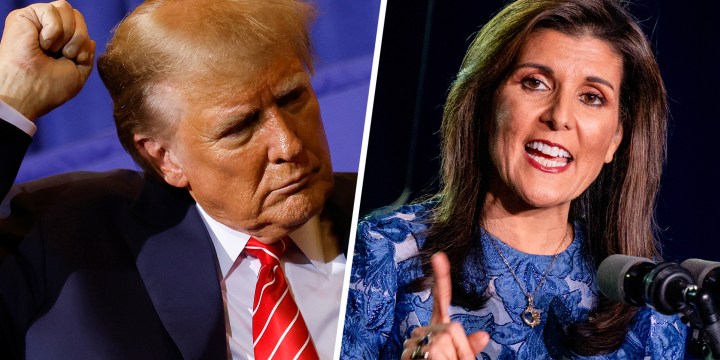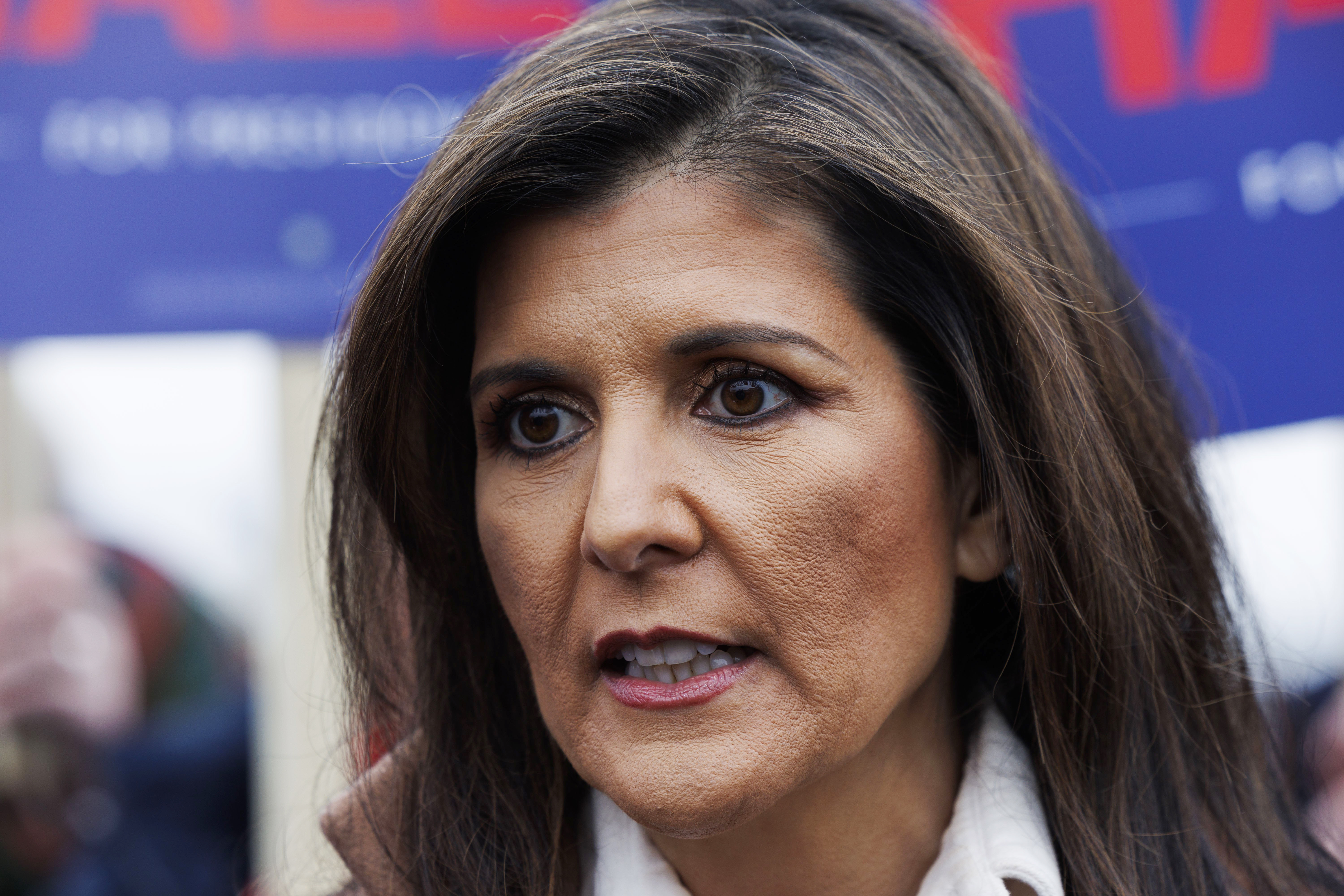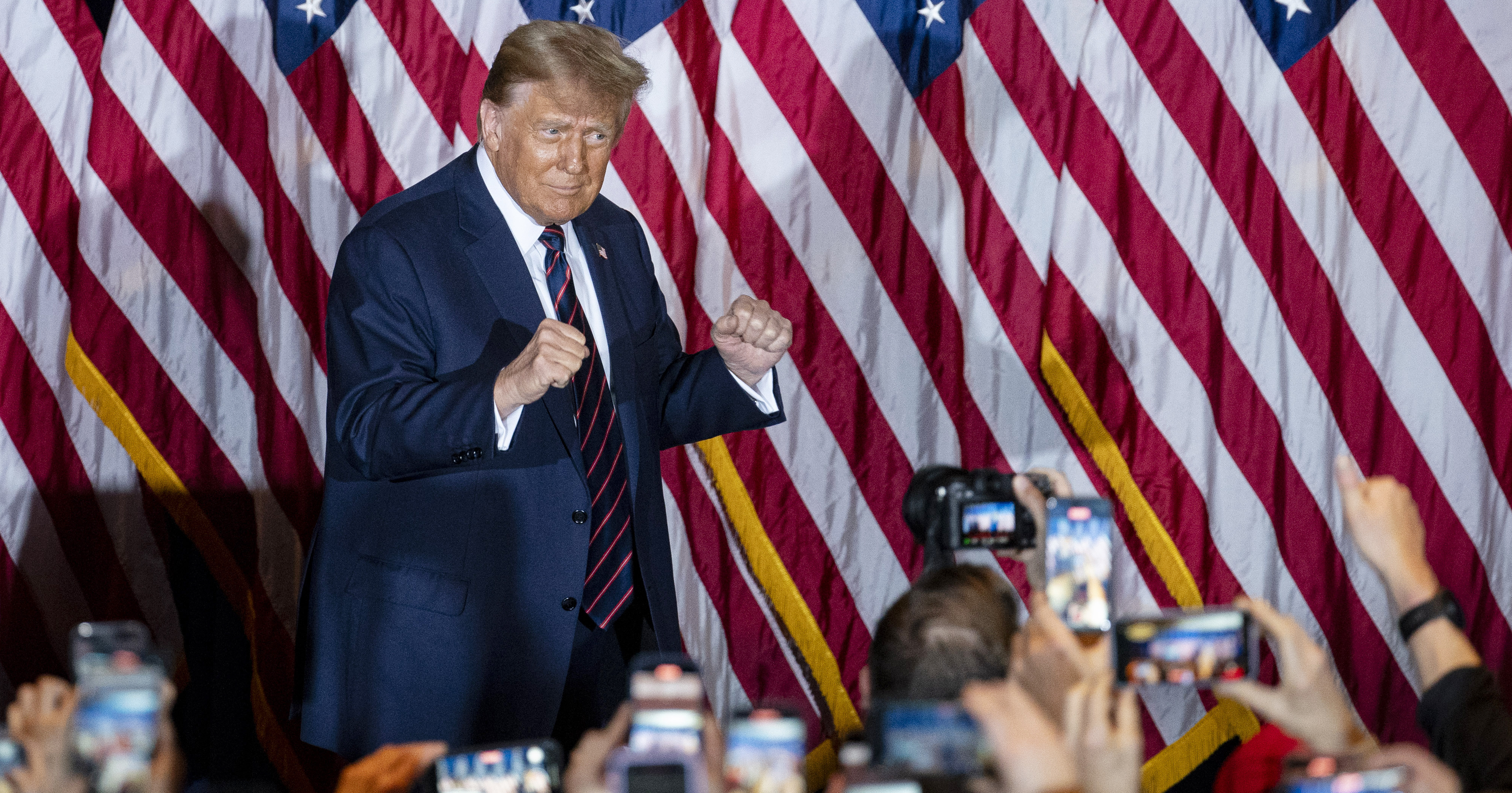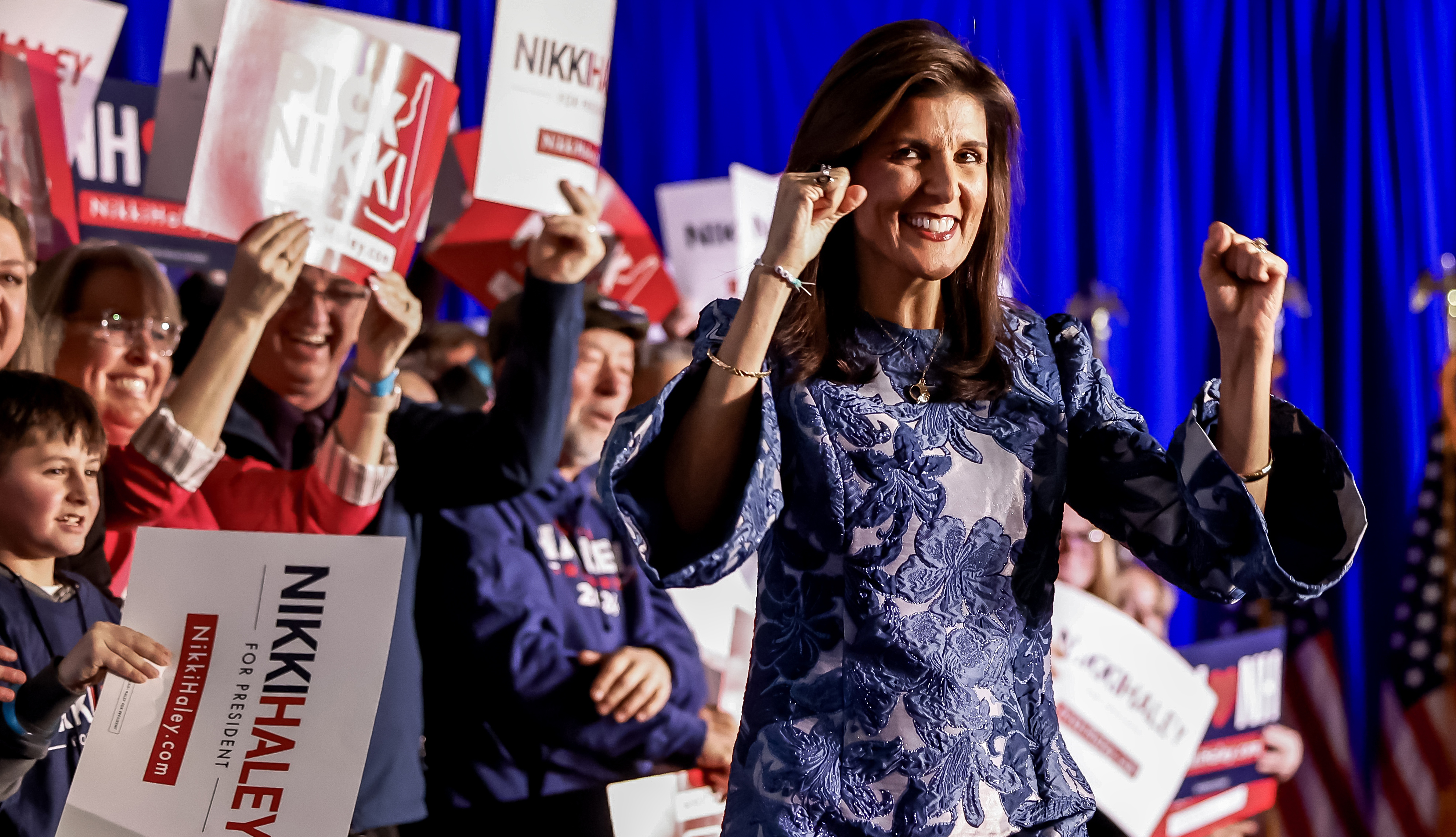US ELECTIONS
The New Hampshire primary election — it will be someone’s ‘last hurrah’

With Donald Trump’s victory in the New Hampshire primary election on Tuesday, 23 January, the Republicans’ choice for the presidential election is nearly locked in after just one primary and a caucus. President Joe Biden, in a write-in campaign, was the Democrats’ winner. Not everybody is happy with this outcome.
Edwin O’Connor’s classic novel of politics, The Last Hurrah, and the film made from it, was about longtime mayor Frank Skeffington in one last, ultimately unsuccessful, effort to be re-elected as mayor of his New England city. O’Connor’s novel also served as a harbinger of television’s impact on elections as it was poised to transform American politics.
The days leading up to the just-concluded primary election in the American state of New Hampshire on Tuesday have already become the last hurrah for several political figures — after their months of efforts to monopolise the airwaves in the news and amidst a growing clamour of commercial messages.
In fact, by the time voters gathered to vote in New Hampshire, nearly a dozen early contestants for the Republican nomination had already conceded the race to the acknowledged front-runner, Donald Trump, despite the fact most of the primary elections haven’t even happened yet. Nevertheless, former challengers, including South Carolina Senator Tim Scott and former governors Chris Christie (New Jersey) and Asa Hutchinson (Arkansas), as well as biotech entrepreneur Vivek Ramaswamy, have all faded from view.
But then, most recently, Florida’s governor, Ron DeSantis, a candidate who had styled himself as a Trumpian on policies, but without that man’s swirling chaos, dropped out of the hunt after spending countless days in Iowa and a whole mountain of his supporters’ money, only achieved a disappointing second place in the Iowa caucus, despite the hype surrounding him early on. After those results, it was all over for DeSantis — at least for this year.
Read more in Daily Maverick: Ron DeSantis, once Trump’s biggest threat, ends 2024 Republican presidential campaign
Yes, DeSantis had edged out former South Carolina Governor Nikki Haley for second place in Iowa, but, with those results had also come the realisation he stood no chance to beat Donald Trump in chasing the same voters. That said, there is some quiet whispering DeSantis’ time was not quite yet and that 2028 will now loom increasingly larger in his thinking.
If Trump gets elected this year, in 2028, he will have finished his second term as president and cannot run again. Or, perhaps, he will have been trounced by incumbent President Joe Biden in November. Either way, for now, DeSantis is returning to Florida to lick his wounds and to pick up the threads of his governorship there. But he may well begin contemplating how to campaign for Trump without the shame of being labelled a “loser” — as Trump inevitably calls those whom he defeats — or imagines he has defeated.

Republican candidate for President, former South Carolina Governor Nikki Haley on Primary Election Day in Hampton, New Hampshire on 23 January, 2024. (Photo: EPA-EFE/CJ Gunther)
Read more in Daily Maverick: Donald Trump and the cognitive decline of the American empire
Going forward, for Republicans, only Nikki Haley is now left as Trump’s opponent. Throughout, Trump has been campaigning as if he were a unique kind of incumbent president. He declined to engage in those earlier multi-candidate debates, choosing instead to schedule one-on-one interviews on his favourite right-wing online broadcast channels, sometimes simultaneously with the debates.
In his campaigning, much of his rhetoric remains fixated on the grievances of his supposed past humiliations, his imaginary victory in 2020, and his strident embrace of strongmen like Hungary’s Viktor Orban, among others. There has been little exposition of actual policies he would want to achieve, if elected, but much braggadocio about also being a strong man who knows how to keep the peace.
With some 43.5% of the vote (versus 54.5% for Trump) Haley has now said she remains in the race, at least until the primary in her home state of South Carolina — although she is not a favourite to triumph there. Nevertheless, we can predict with near certainty Trump will not deign to debate her. In fact, looking ahead, it is not clear that as the Republican candidate, Trump will agree to debate President Biden after Labour Day in September. By that point, the campaign season revs up, once the summer vacation period is over. There is no law requiring debates, and any debates are not organised by the government.
Given how things have turned out, we should contemplate a much earlier start to the head-to-head, increasingly bitter and intense campaigning this year than is usually the case. This is because both the Republican and Democratic candidates are all but formally determined, although the national conventions must still do their formal ratifications and there are many primaries yet to take place.
Third-party candidates
Of course, as America moves into the actual presidential campaign, things may be complicated somewhat by the presence of several fairly high visibility third, fourth, and maybe even a fifth party candidate, all of them vying for attention in the media, even if their actual electoral chances are virtually zero. The reason for that is because American presidential elections are actually run on a state-by-state basis, rather than a simple national vote count.
First of all, a candidate beyond someone from the two major parties must qualify to be on a statewide ballot — and each state sets its own requirements for being added to the ballot. Then, the candidate must actually win the most votes in a state in order to gain its electoral votes.
Note that the electoral weight of a state is equal to the number of its members in its congressional and senatorial delegations, and thus it is a rough measure of a state’s population. Only two states with small populations split their respective electoral votes, giving a candidate an electoral vote for each congressional district won by that candidate.
As a result, it is a nearly unachievable mission for what would be a third-party candidate to win a presidential election. And, importantly, none, effectively, have done so since Abraham Lincoln won in 1860. That year, there were four major candidates — one from the new Republican Party, one a candidate from the Constitutional Union Party built upon the ruins of the old Whig Party, and two from the Democrats. That party had split into a northern and a southern half over support for the institution of slavery. In that election, Lincoln won when he gained a majority of the electoral votes of northern and western states.
Nonetheless, third or fourth-party candidates can affect the outcomes of presidential elections by winning sufficient votes in certain states to shift the results in those states from one party to the other party — as happened with Ralph Nader in 2000 and Jill Stein in 2016 for the Green Party, thereby electing George W Bush and Donald Trump over Al Gore and Hillary Clinton respectively. These kinds of outcomes continue to fuel the idea for some that the time has come for presidents to be directly elected in a national poll. Still, the constitutional changes that would be required have not yet escalated to a massive national demand.
So far, academic Cornel West and Robert Kennedy Jr (former congressman, son of the assassinated Robert F Kennedy, anti-vaxxer and prominent conspiracy theorist) have indicated their intentions to run as independent candidates, and the figures in the so-called “No Label” movement say they are also contemplating putting someone up as well as a candidate.
If there are all these additional candidates, state by state, ballots will feature different lists of candidates. To be fair, a number of other parties such as the socialists, the vegetarians, the prohibitionists, and a few others have repeatedly appeared on ballots, generally with little success. (During the Great Depression, the socialists did garner hundreds of thousands of votes, but such support did not affect the outcome.)

Former US President Donald Trump during a New Hampshire primary election night. (Photo: Al Drago/Bloomberg via Getty Images)
New Hampshire, not an infallible guide
By the time the New Hampshire primary votes were all counted — even though the first town to vote, Dixville Notch in the state’s far north, gave all six of its residents’ votes to Haley — it became clear that despite Nikki Haley’s support among college-educated, suburban dwelling, independent-minded voters, she was beaten by the Trump/Maga machine among registered Republicans.
New Hampshire is an outlier in its primary election system as voters not registered as party members may vote in either party’s primary and party adherents can switch their affiliation at the last moment as well. It is understood a significant part of Haley’s support came from those independents rather than from longtime Republicans.
In New Hampshire, this Republican Party primary was where the action was. President Biden was not even on the ballot and so the effort there was to gain a significant vote from write-ins in order to squelch the candidacy of Congressman Dean Phillips which is what happened. Phillips has admitted he supports the incumbent president’s policies, but wanted voters to have an alternative choice — presumably in response to Biden’s age and his likely struggle to defeat Donald Trump in November. In the end, Phillips’ quixotic challenge fell short.
The Democrats had decided not to endorse a primary in New Hampshire in its traditional first in the nation place, and thus the decision was made not to allocate New Hampshire’s small number of delegates as a result of this Democratic primary. The Biden forces preferred to have Biden’s primary strength tested first in South Carolina, a state that had helped turn Biden’s political fortunes for the better in 2020.
Historically, however, the New Hampshire primary has not been an infallible guide to ultimate outcomes for candidates. The late Senator John McCain had trounced George W Bush in 2000 even though Bush ended up as the Republicans’ candidate and president. Most memorably, Senator Eugene McCarthy, a Democrat from Minnesota, challenged incumbent Lyndon Johnson in 1968 in a New Hampshire primary.
McCarthy’s unexpectedly strong showing in New Hampshire nudged President Johnson into withdrawing his name from consideration — in the face of the growing national divide over an unending war in Vietnam. Robert F Kennedy, then a senator from New York, then stormed through other primaries and state conventions and he was close to gaining the nomination in place of a reluctant Vice President Hubert Humphrey. That seemed about to happen until Kennedy was murdered in a hotel kitchen on the night of his victory in the California primary. Humphrey ultimately gained the nomination in a deeply fraught convention, but then lost the election to Richard Nixon, marking the latter’s comeback from the politically dead. Regardless of the cynics, candidates and parties do differ, and elections matter.

Republican presidential candidate Nikki Haley. (Photo: EPA-EFE/CJ Gunther)
Road to November, and beyond
Now, despite her public bravado, Nikki Haley must be thinking hard — just like her political backers, supporters, and financial donors — about whether it remains worth the effort to continue the fight, in the face of the demonstrable strength of Donald Trump’s cult-like Maga following among Republicans.
Perhaps, too, she may be wondering what might have happened had she strongly broken with Trump’s policies and style much earlier and if that would have made 2024 Trump’s last hurrah. With the results now in, she (and DeSantis, presumably as well) must now start to figure out ways, along with other possible candidates, to build a more robust support base over the next four years. This will be regardless of whether or not Trump ultimately is victorious, come November, because he would be ineligible to run again in 2028.
Meanwhile, among Democrats, if Joe Biden fails — or wins — in his own last hurrah in November, the competition to capture national attention among a plethora of would-be candidates will become increasingly fierce. It would include governors like California’s Gavin Newsom, several particularly stand-out members of Biden’s cabinet, the incumbent vice president, and a long list of some of the party’s best-known names in the Senate.
Read more in Daily Maverick: Biden versus Trump: An Age of Ageism?
In the meantime, both parties will now be directing their attention towards raising funds for this year’s campaign, and in building popular support for their candidates. This will be the case especially since polling continues to say the public at large is less than happy with a choice between two old men. Moreover, it should not be forgotten that beyond the presidency, there are elections for all the members of the House of Representatives, a third of the Senate, many hundreds of state legislators, many governors, and still more local officials.
Looking ahead, Trump will be dividing his time between campaigning and trying to keep out of the pokey because of all those legal dramas in different states. Meanwhile, Biden and his team will be scratching their heads over how to frame their campaign as a demonstration of his administration’s economic success and foreign policy chops (and in banging the drum especially loudly over support for women’s reproductive rights).
Such efforts will be important challenges for the incumbent president because a majority of the country remains unconvinced about these aspects of Biden presidential policy. Most troublingly, perhaps, there is a lack of belief in the incumbent’s ability to manage immigration along the country’s southern border. DM


















Comments - Please login in order to comment.